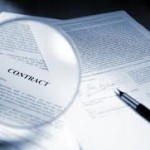After salaries, the cost of occupation is likely to be the biggest business overhead a business has. As a lease invariably involves a commitment for a substantial period of time, it is imperative to obtain the right premises on the right terms.
- Basic Rules;
- Plan Ahead;
- Understand your Options;
- Know your Repairing Liability;
- Know the Market for your Premises;
- Review the Lease Terms;
- Understand the Implications of Break Options.
- Understand Timing of Notices;
- Communicate with your Landlord and use the Lease as reason to have a dialogue.
- Lease Re-gearing: Re-gearing a lease can help occupiers reduce costs and provide better business flexibility.
- Rent Reviews: Agreeing the most advantageous outcome at rent review is about correct interpretation of the lease terms and incorporating accurate market information from analysed rents of comparable properties. Timing of notices and whether time is of the essence and any pertinent case law can affect a tenants occupation.
- Lease Renewals: Unless a lease has been specifically excluded, the Landlord & Tenant Act (1954) defines statutory requirements and timetables to be followed at lease renewal. It is critical that tenants understand the timing mechanisms of Notices for business continuity.
- Dilapidations: A landlord can serve a Schedule of Dilapidations at any time during the lease term itemising repair works required to the building to ensure compliance with the repairing covenant in the lease. Tenants need to be alive to what they are obliged to do and what not.

 07831-474554
07831-474554






